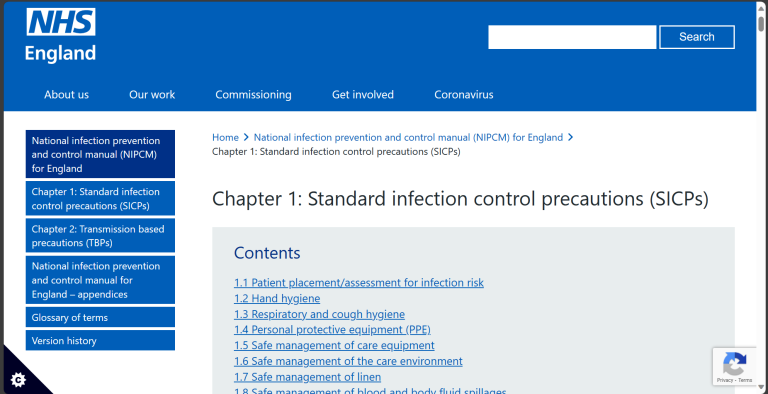Reference Documents, Relating to Hand Hygiene Compliance.
Published Documentation relating to Hand Hygiene Compliance and Guidelines.
Review, Gaps and
Challenges
"WHO recommends as a minimum requirement for IPC that health care facilities should implement multimodal strategies to achieve hand hygiene improvement.
In this context, hand hygiene is also recommended:
- in all health care facilities as a minimum requirement.
- within standard operating procedures.
- for training of all health workers.
- as an indicator for monitoring and feedback
- as part of the built environment necessary to provide safe and quality care.
In particular, having the materials and facilities to perform appropriate hand hygiene readily available at the point of care is part of the core components of IPC programmes.
Furthermore, hand hygiene monitoring is strongly recommended as a key performance indicator at the national level. "
Guidance on Priorities for Hand Hygiene Research
Focus is on the following 6 Core Domains:
- System Change.
- Training and Education.
- Evaluation and Feedback.
- Reminders and Communication
- Institutional Safety Climate.
- Impact of Hand Hygiene on HCAI/AMR
Evidence-based WHO Guidelines on Hand Hygiene in Health Care
World Health Organization (WHO) has developed evidence-based WHO Guidelines on Hand Hygiene in Health Care to support health-care facilities to improve hand hygiene and thus reduce HCAI.
This Guide to Implementation has been developed to assist health-care facilities to implement improvements in hand hygiene in accordance with the WHO Guidelines on Hand Hygiene in Health Care.
WHO Self-Assessment Guidelines
"The Hand Hygiene Self-Assessment Framework is divided into five components and 27 indicators. The five components reflect the five elements of the WHO Multimodal Hand Hygiene Improvement Strategy. "
"In particular, it acts as a diagnostic tool, identifying key issues requiring attention and improvement. The results can be used to facilitate development of an action plan for the facility’s hand hygiene promotion programme."
National Infection Prevention and Control Manual (NIPCM) for England
"Standard infection control precautions (SICPs) are to be used by all staff, in all care settings, at all times, for all patients whether infection is known to be present or not, to ensure the safety of those being cared for, staff and visitors in the care environment."
This document specifies hand hygiene training, compliance benchmarking, performance/ feedback, and facility requirements for healthcare facilities that operate hand hygiene systems
Report includes:
- Hand Hygiene quality policy and requirements.
- Hand hygiene programs.
- Training and education.
- Cultural aspects of hand hygiene management.
To assess the potential clinical and economic impact of introducing an electronic audit and feedback system.
"If the introduction of the electronic audit and feedback system into current practice in a hypothetical general hospital in England can improve hand hygiene compliance among front-line HCPs leading to a reduction in the incidence of HCAIs by ≥15%, it would potentially afford the NHS a cost-effective intervention"
Clinical and economic benefits could accrue from an increased awareness of the impact that HCAIs impose on patients, the NHS and society as a whole.
"This study is timely because it is the first economic study for 25 years to evaluate the annual health economic burden that healthcare-associated infections (HCAIs) impose on National Health Service hospitals in England."
Using the monitoring system, hand antisepsis adherence was increased by up to 104.5% in comparison to the baseline measurement.
A short-term intervention alone is not sufficient to lead to a long-term change in hand antisepsis adherence. Rather, permanent feedback and/or the integration in a multi-modal intervention strategy are necessary.
©Copyright. All rights reserved.
We need your consent to load the translations
We use a third-party service to translate the website content that may collect data about your activity. Please review the details and accept the service to view the translations.








